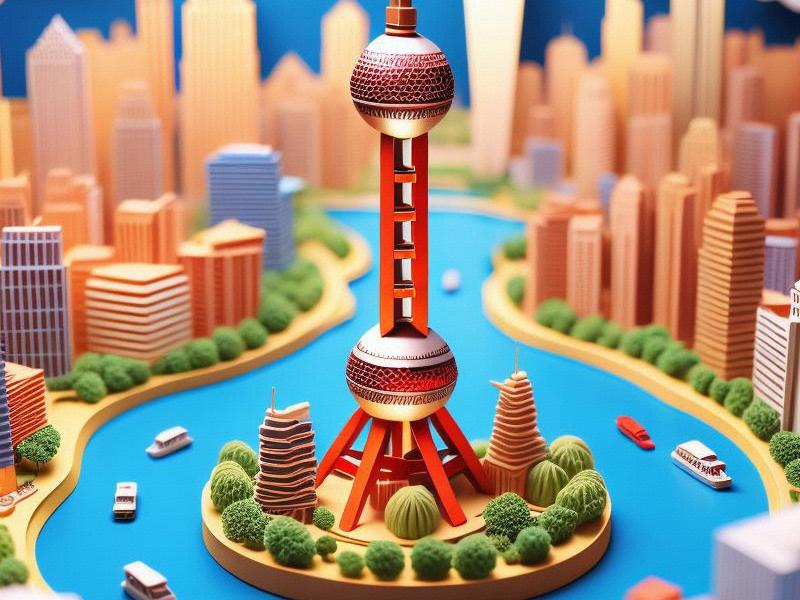This article provides a comprehensive overview of Shanghai, highlighting its economic significance, urban development, cultural diversity, and its role as a global city. Shanghai, often referred to as the "Pearl of the Orient," is a vibrant metropolis that has transformed from a fishing village into one of the world's most dynamic cities.

Shanghai, a sprawling city along the banks of the Yangtze River in eastern China, is not just a city; it is a symbol of China's rapid modernization and a testament to the country's economic prowess. Known as the "Pearl of the Orient," Shanghai is a city where the old meets the new, where ancient traditions coexist with cutting-edge modernity.
Historically, Shanghai was a small fishing village. However, its strategic location at the mouth of the Yangtze River made it a crucial port for trade and commerce. During the 19th century, Shanghai was forcibly opened to foreign trade as one of the concessions under the unequal treaties imposed by Western powers. This period saw the influx of various foreign influences, which left a lasting imprint on the city's architecture, culture, and cuisine.
Today, Shanghai is the largest city in China and one of the world's most populous metropolitan areas. It is the economic, financial, trade, shipping, and science and technology center of China. The city's GDP ranks first among all Chinese cities, and it is home to the Shanghai Stock Exchange, one of the largest stock exchanges in the world.
The urban landscape of Shanghai is a blend of historic and modern architecture. The Bund, a waterfront area along the Huangpu River, is a showcase of colonial-era buildings that now house offices, hotels, and restaurants. Across the river lies Pudong, a symbol of Shanghai's modernity, with its skyline dominated by the iconic Oriental Pearl Tower, the Jin Mao Tower, and the Shanghai Tower, the tallest building in China.
夜上海最新论坛 Shanghai's economic development has been nothing short of remarkable. It is a global financial hub, with a robust banking sector, a thriving stock market, and a growing number of multinational corporations setting up their regional headquarters there. The city is also a major center for trade and logistics, with the Port of Shanghai being the busiest container port in the world.
In addition to its economic achievements, Shanghai is also a cultural melting pot. The city is known for its vibrant arts scene, with numerous museums, galleries, theaters, and music venues. The Shanghai Museum, for example, is renowned for its extensive collection of ancient Chinese art, while the Shanghai Grand Theatre hosts a wide range of performances, from opera to contemporary dance.
Cuisine is another aspect where Shanghai shines. The city is famous for its Shanghainese cuisine, which is characterized by its sweet and savory flavors, delicate textures, and meticulous preparation. Dishes such as Xiaolongbao (soup dumplings), Shengjianbao (pan-fried buns), and Lion's Head meatballs are must-tries for any visitor.
Shanghai is also a city of innovation and technology. It has been at the forefront of China's digital transformation, with a thriving tech industry and a strong focus on smart city initiatives. The city's residents enjoy a high standard of living, with excellent healthcare, education, and public services.
上海贵族宝贝自荐419
However, rapid urbanization has brought challenges as well. Traffic congestion, air pollution, and housing affordability are issues that the city government is actively addressing. Efforts are being made to promote sustainable development and improve the quality of life for its residents.
Shanghai's role in global affairs is also noteworthy. It is a member of the World Expo, having hosted the prestigious event in 2010, which attracted millions of visitors from around the world. The Expo left a lasting legacy, with the transformation of the former Expo site into the Yu Garden area, a new cultural and recreational hub.
The city is also a major center for international diplomacy and trade. It hosts numerous international conferences and summits, making it a key player in global economic governance. Shanghai's free trade zone is a pilot project that aims to promote trade liberalization and economic reform.
上海夜网论坛 Culturally, Shanghai has a rich heritage that it continues to celebrate and preserve. The city is home to several UNESCO World Heritage sites, including the classical gardens of Suzhou, which are just a short trip away. Traditional Chinese arts such as calligraphy, painting, and opera are still very much alive in Shanghai, with many schools and institutions dedicated to their preservation and promotion.
Shanghai's future looks promising, with ambitious plans for further urban development and economic growth. The city is investing heavily in infrastructure, including the expansion of its metro system, the development of new business districts, and the promotion of green and sustainable practices.
In conclusion, Shanghai is a city that embodies the spirit of China's modernization and its aspirations for the future. It is a place where history and modernity coexist, where tradition and innovation thrive, and where the local and the global intersect. Whether you are interested in business, culture, or simply exploring a vibrant city, Shanghai offers an unforgettable experience.
As Shanghai continues to grow and evolve, it remains a beacon of progress and a symbol of China's rise on the global stage. The city's story is one of resilience, adaptability, and ambition, and it serves as an inspiration to cities around the world.